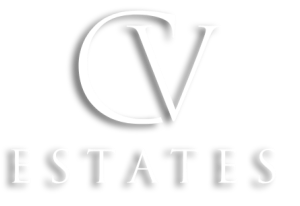In the last decade, there has been a noticeable shift in consumer preferences toward more eco-friendly living environments. Buyers and investors alike are seeking properties that align with a growing awareness of environmental issues such as climate change, energy consumption, and carbon footprints. In Dubai, this shift is particularly significant. The city, known for its arid climate and energy-intensive developments, is now at the forefront of implementing green building standards and sustainable urban planning.
Developers have responded to this demand by incorporating sustainable practices in new projects, such as using energy-efficient materials, integrating solar panels, and designing buildings that minimize water and electricity consumption. From families looking for healthier environments to environmentally-conscious investors seeking properties with lower operational costs, the demand for sustainable developments is on the rise in Dubai.
Government Initiatives and Regulations
- Dubai’s push for sustainability is not solely market-driven; it is also supported by government initiatives aimed at transforming the city into a global model for sustainability. Dubai’s ambitious “Clean Energy Strategy 2050” aims to provide 75% of its energy from clean sources by mid-century, which has had a direct impact on real estate.
- The Dubai Municipality’s Green Building Regulations, introduced in 2014, are one example of how the government has set clear guidelines for sustainable construction practices. These regulations mandate that new buildings meet stringent energy and water efficiency standards, which have been adopted across both residential and commercial developments. Furthermore, Dubai’s implementation of the Estidama Pearl Rating System, which assesses the environmental performance of buildings, adds an extra layer of accountability, ensuring that developers adhere to sustainability goals.
- With government backing and strong regulatory frameworks, eco-friendly developments are no
longer a niche market—they are quickly becoming the new standard in Dubai real estate.
Benefits for Investors and Residents
- For real estate investors, sustainability is more than just a buzzword—it’s a smart investment strategy. Eco-friendly properties often boast higher long-term value due to lower operational costs and a stronger appeal to a growing market of eco-conscious buyers. Properties that incorporate sustainable technologies—such as solar panels, energy-efficient lighting, and water recycling systems—often result in reduced utility bills for residents, making them more attractive to long-term tenants or buyers.
- In addition, sustainable developments typically offer better indoor air quality and reduced exposure to harmful chemicals, which is a major selling point for families and individuals looking to prioritize health and well-being. With features like green spaces, community gardens, and energy-efficient cooling systems, these properties create a living environment that aligns with a more holistic and eco-friendly lifestyle.
Dubai is home to several forward-thinking developments that prioritize sustainability without compromising on luxury or innovation. Some notable projects include:
• The Sustainable City: One of the most ambitious eco-friendly projects in Dubai, The Sustainable City is designed to be a self-sustaining, low-carbon community. It features solar-powered homes, electric car charging stations, and a car-free zone to reduce pollution. This project also has on-site recycling facilities and organic farms, providing a fully integrated sustainable living experience.
• Masdar City: Although technically in Abu Dhabi, Masdar City’s influence is felt across the UAE, including Dubai. This zero-carbon, zero-waste city is a model for sustainable urban living and has inspired several Dubai-based projects to adopt similar energy-efficient and carbon-neutral goals.
Additionally, many developers across Dubai are incorporating energy-efficient designs and sustainable building materials into their projects. These developments often feature smart home systems, energy-saving technologies, and a focus on reducing the overall environmental impact of the building process. The result is a growing number of properties that appeal to eco-conscious buyers while promoting energy efficiency and lower operational costs.
Conclusion
Sustainability is no longer just a trend in Dubai’s real estate market—it is becoming a fundamental aspect of the city’s growth and development. Eco-friendly projects are reshaping the way people think about property investment, offering long-term benefits that go beyond financial returns. As both residents and investors increasingly prioritize environmental responsibility, Dubai’s real estate landscape is adapting to meet these demands with innovative, sustainable developments.
For new buyers, it’s important to note that properties incorporating sustainable features may come with a higher upfront cost compared to traditional homes. However, this premium is justified by the long-term savings in energy costs, lower maintenance expenses, and the positive environmental impact. When factoring in these sustainability benefits, buyers should view the higher price as an investment in the future—one that not only enhances their quality of life but also protects the value of their property in a market that is increasingly favoring green real estate.
With government backing, developer innovation, and a shift in market preferences, the future of Dubai real estate is undoubtedly green—and savvy investors should prepare to take full advantage of this eco-friendly wave.


